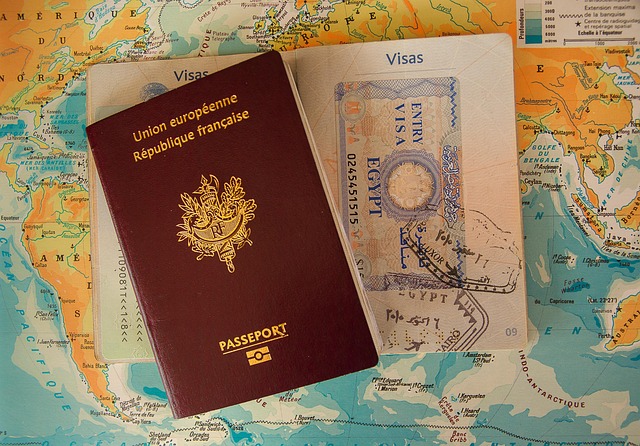
When planning an international trip, understanding the type of visa you need is crucial. Whether you’re traveling for education or tourism, the purpose of your visit determines the kind of visa you must apply for. Two of the most common types of visas are student visas and tourist visas. But what’s the real difference between them?
In this blog post, I’ll walk you through the key differences between student visas and tourist visas, their requirements, validity, restrictions, and how to choose the right one based on your travel goals.
What is a Student Visa?
A student visa is a type of visa issued to individuals who wish to study in a foreign country for an extended period. This visa allows the holder to enroll in an accredited academic institution — such as a university, college, or language school.
Key Features of a Student Visa:
-
Purpose: Study or academic research
-
Duration: Long-term (from a few months to several years)
-
Work Rights: Limited work rights in most countries (e.g., 20 hours/week)
-
Issued To: Individuals enrolled in full-time courses
-
Requirement: Must have an offer letter or admission confirmation from an approved educational institution
What is a Tourist Visa?
A tourist visa, also known as a visitor visa, is issued to individuals who want to travel to another country for leisure, sightseeing, family visits, or short-term non-academic purposes.
Key Features of a Tourist Visa:
-
Purpose: Tourism, vacation, visiting family/friends
-
Duration: Short-term (typically 30–90 days)
-
Work Rights: No work or study permitted
-
Issued To: Travelers and tourists
-
Requirement: Must provide proof of return ticket and sufficient funds
Student Visa Vs Tourist Visa: Key Differences
| Aspect | Student Visa | Tourist Visa |
|---|---|---|
| Purpose | Studying at a school, college, or university | Tourism, sightseeing, or family visit |
| Duration | Long-term (months to years) | Short-term (days to 6 months) |
| Work Rights | Limited work rights (e.g., 20 hrs/week) | No work allowed |
| Required Documents | Admission letter, financial proof, medical insurance, passport, visa application form | Return ticket, travel itinerary, accommodation proof, financial proof |
| Processing Time | 2–8 weeks (varies by country) | 5–20 working days (varies by country) |
| Visa Extension | Possible in many countries | Rarely allowed |
| Examples of Countries with Work-Eligible Student Visas | Canada, UK, Australia, USA, Germany | N/A – tourist visas prohibit work |
When Should You Apply for a Student Visa?
You should apply for a student visa if:
-
You’ve received an admission offer from a foreign educational institution
-
Your course duration is more than 3 months
-
You need to attend classes, write exams, and receive a certificate or degree
-
You plan to work part-time while studying
Example:
If you’re going to study Computer Science at a university in Canada, you must apply for a Canada Study Permit (student visa), which allows you to live, study, and work part-time legally.
When Should You Apply for a Tourist Visa?
You should apply for a tourist visa if:
-
You’re planning a vacation or family visit
-
Your stay will be short-term (usually under 6 months)
-
You don’t intend to study or work
-
You want to explore attractions, attend events, or spend holidays abroad
Example:
If you’re visiting Paris for sightseeing and tourism, you’ll need a Schengen Tourist Visa, which grants access to multiple European countries for up to 90 days.
Common Mistake: Using a Tourist Visa for Study
Important: It is illegal in most countries to study (especially full-time) using a tourist visa. You must have the correct visa that aligns with your travel purpose.
Consequences of violating visa rules include:
-
Visa denial in future applications
-
Deportation and travel bans
-
Immigration record complications
How to Choose the Right Visa?
Ask yourself:
-
Why am I traveling?
-
How long do I plan to stay?
-
Will I be studying or working?
| If your purpose is… | Apply for… |
|---|---|
| Academic study (3+ months) | Student Visa |
| Short vacation or visit | Tourist Visa |
| Studying short courses (under 90 days)* | Some countries may allow on a tourist visa, but check with the embassy first |
Requirements for a Student Visa
While requirements vary by country, most student visas need:
-
Valid international passport
-
Admission letter from a recognized institution
-
Proof of financial capacity (bank statements/sponsors)
-
Passport-sized photos
-
Visa application form and fees
-
Language proficiency (e.g., IELTS, TOEFL)
-
Health insurance
-
Police clearance certificate (in some cases)
Requirements for a Tourist Visa
Typical documents include:
-
Valid international passport
-
Completed visa application form
-
Passport-sized photographs
-
Proof of accommodation
-
Proof of return ticket
-
Proof of sufficient funds
-
Travel itinerary
-
Visa application fee
Countries with Clear Student vs Tourist Visa Policies
| Country | Student Visa Name | Tourist Visa Duration |
|---|---|---|
| USA | F-1 Student Visa | 6 months (B-2 Visa) |
| Canada | Study Permit | 6 months (Visitor Visa) |
| UK | Tier 4 Student Visa | 6 months (Standard Visitor Visa) |
| Australia | Subclass 500 | 3–12 months (Visitor Visa) |
| Germany | Student Visa | 90 days (Schengen Visa) |
FAQs About Student Visa Vs Tourist Visa
1. Can I study with a tourist visa?
No. Most countries do not allow academic study with a tourist visa. You need a student visa for formal education.
2. Can I convert a tourist visa to a student visa?
Some countries allow it (like Canada or Australia), but it often requires leaving the country and reapplying. It’s better to apply directly for a student visa.
3. Can I work with a tourist visa?
No. Tourist visas strictly prohibit employment or paid activity.
4. What happens if I overstay my tourist visa?
Overstaying can lead to fines, deportation, or bans from reentering the country.
5. Is a student visa more difficult to get than a tourist visa?
Yes, because student visas involve more documents, longer stays, and background checks. However, approval is likely if you meet all requirements.
READ ALSO: Step-by-Step Guide to Study and Work Abroad
Conclusion
Understanding the difference between a student visa and a tourist visa is essential before traveling abroad. While a tourist visa is great for short visits and sightseeing, a student visa is necessary for long-term academic goals and may even offer work opportunities. Applying for the correct visa ensures you stay legally compliant and enjoy a stress-free international experience.
Are you planning to study or travel abroad?
Drop your questions in the comments or share this post with friends who need clarity on visa options!



















1 thought on “Student Visa Vs Tourist Visa: What’s the Difference?”